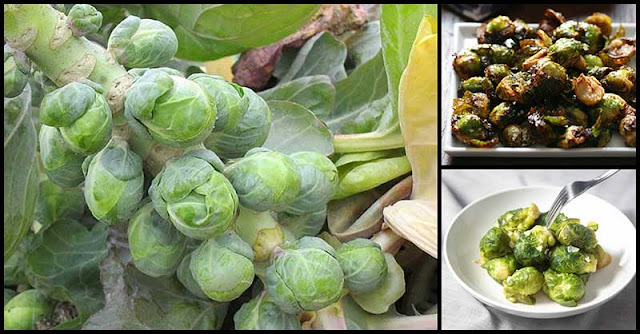Brussels sprouts are delicious miniature cabbages that are loaded with nutrients including vitamin A, B6, C, and K and dietary fiber. Consumption of this cruciferous vegetable has been associated with a lowered risk of a range of diseases.
May Help With Blood Sugar Regulation
Brussels sprouts have antioxidant power and high fiber content. Studies have shown that increased consumption of cruciferous vegetables like Brussels sprouts can help lower our risk of diabetes. Its fiber content helps in controlling blood sugar and insulin levels while the antioxidant, known as alpha-lipoic acid, can help improve insulin function.
May Help Lower Inflammation
Brussels sprouts contain substances called glucosinolates, which are able to regulate the body’s inflammatory response. These protect cells from DNA damage, fend off aging and help us in managing inflammatory conditions including rheumatoid arthritis, obesity, inflammatory bowel diseases, and type 2 diabetes.
In a study, results revealed that women who have a high consumption of cruciferous veggies have experienced a significant decrease in certain markers of inflammation in their blood and urine.
Consume more of Brussels sprouts to help the body get back on track and reduce pain.
Loaded With Vitamin K
Brussels sprouts are loaded with vitamin K that helps in blood clotting and protects us against bone loss.
Helps Boost The Immune System
A cup of Brussels sprouts contains more than 120% of our daily recommended amount of vitamin C. This is beneficial since vitamin C is needed for a healthy immune system. It acts as an antioxidant in the body, stimulates the production of white blood cells needed for collagen production, and reduces oxidative stress.
They May Help Prevent Cancer
eating Brussels sprouts are part of a balanced diet and may help prevent certain cancers.
In a study conducted, results revealed that consumption of cruciferous veggies like brussels sprouts can help in protecting against oxidative DNA damage that causes cancer.
Moreover, in a study published in the journal Carcinogenesis, it was found that its glucosinolates can help lower down one’s risk of colorectal cancer.
Can Help Improve Digestion
Brussels sprouts have high levels of dietary fiber. Fiber supports digestive health, bulks up the stool, reduces constipation, and helps feed the beneficial gut bacteria. A half-cup of Brussels sprouts gives you about 2 grams of daily fiber.
A Rich Source Of Folate
Regularly eating Brussels sprouts is very important for expectant mothers. It has high levels of folic acid to prevent birth defects if eaten while pregnant.









